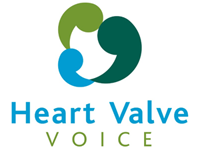
“Urgent Action is Needed to Clear the Backlog” – Research Finds

According to new research, urgent action is needed to clear the backlog of people requiring treatment for aortic stenosis or risk unnecessary loss of life.
Research released this month in BMJ has warned that a lack of action could result in thousands of people dying while waiting for treatment for aortic stenosis (AS).
The International team of researchers, including Professor Chris Gale, a Professor of Cardiovascular Medicine at the School of Medicine and Co-Director of Leeds Institute for Data Analytics, has modelled the potential impact on waiting lists of increased treatment capacity and the use of less invasive treatment options.
The research shows that even in the best-case scenario, the waiting list for severe aortic stenosis would take nearly a year to clear, and more than 700 people would die while waiting for treatment.
Professor Gale says, “During the COVID-19 pandemic, there was a great decline in procedures used to treat severe AS. In our study, we found that without a combination of increased capacity for treatment of patients with severe AS and an expansion in the use of TAVI, there would be many potentially avoidable deaths during the post-COVID-19 recovery period.”
The researchers investigated the impact that increasing treatment capacity and converting a proportion of operations to the quicker TAVI procedure would have on the backlog.
They found that the best and most achievable option involved a combination of increasing capacity by 20% and converting 40% of procedures from Surgical Aortic Valve Replacement(SAVR) to TAVI. This would clear the backlog within 343 days, with an estimated 784 deaths while people wait for treatment.
Professor Gale says, “We have previously reported the catastrophic effect that the COVID-19 pandemic has had globally on cardiovascular services. We know that during the COVID-19 pandemic, there was a substantial decline in procedures used to treat severe AS. In our study, we found that despite a combination of increased capacity for treatment of patients with severe AS and an expansion in the use of TAVI to try to tackle the backlog of patients with severe AS, there would be many potentially avoidable deaths during the post-COVID-19 recovery period. That is, it is inevitable that some people with severe AS will die.”
Heart Valve Voice Executive Director, Wil Woan, said: “This research builds on previous data we have seen illustrating the impact of the backlog and the critical risk to life. From the pandemic’s beginning, Heart Valve Voice has stressed the need to utilise all clinically appropriate treatment options available to ensure we can treat more patients and save lives. However, cardiac treatment can’t wait. We need to ensure that additional resources are provided to maximise treatment capacity and ensure patients receive the treatment and care they need. I welcome Professor Gale and his colleagues’ work, and look forward to working with them on providing workable solutions to these issues.”
Latest News
A Brief History of the Stethoscope and its Role in Detecting Heart Valve Disease
At Heart Valve Voice, we are committed to promoting early detection and timely treatment [...]
WHF urges countries to develop cardiovascular action plans and launches global petition
Geneva, 27 September 2024: The World Heart Federation (WHF) is launching a global petition urging all [...]
Wil’s Blog – Looking Back at International Heart Valve Disease Awareness Week 2024
As I reflect on last week’s International Heart Valve Disease Awareness Week, I am both [...]









